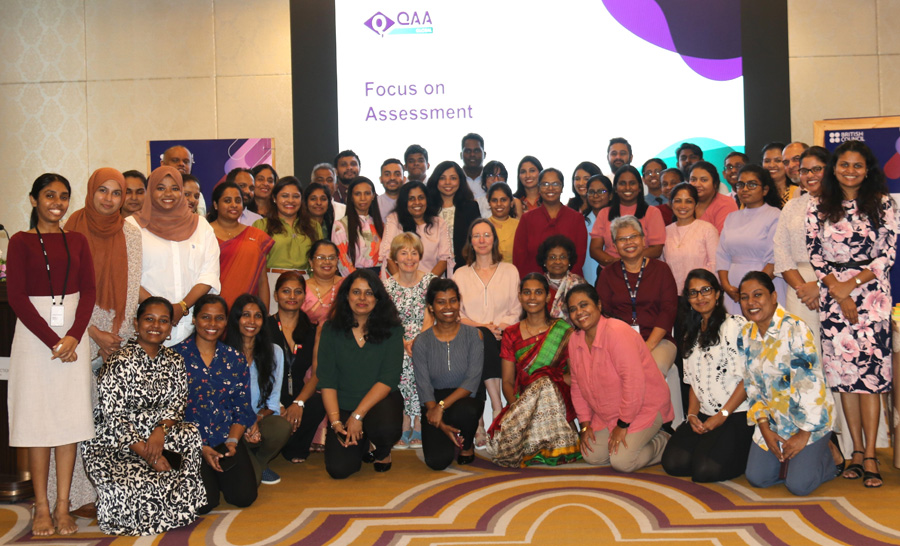Over 100 senior academics, quality specialists, and administrators took part, marking a key step toward ensuring consistent, high-quality delivery of UK-affiliated programmes in Sri Lanka.
Led by Dr. Jenny Cann (UK QAA) and Krisztina Ford (International QA Specialist), the sessions equipped TNE providers with practical frameworks for programme design, institutional governance, and quality enhancement aligned to global standards.
The workshops covered the full TNE lifecycle, from building partnerships and curriculum design to assessment, student voice, and governance.
The final day tackled emerging challenges, such as digital learning, AI, and the complexity of managing global partnerships.
“This wasn’t just about ticking boxes,” said Zahra Nawfer from BMS about structured learning across the TNE lifecycle.
“It reminded us that quality is a shared ethos.
The format encouraged reflection and peer learning.”
With Sri Lanka being the second-largest host of UK TNE globally (60,000+ enrolments), the initiative was well-received, and addressed sector needs identified in a British Council–Times Higher Education study, particularly on transparency, data practices, and capacity building.
Participants too reported tangible takeaways.
“The focus on embedding employability in curriculum design was a game-changer,” said Dr. Krishani Anuradha Jayasinghe of Saegis Campus.
“We’re already planning internal workshops.”
Others, like Mary Lanshiya of BIET, noted the sessions helped clarify their strategic direction with UK partners.
Furthermore, the workshops created space for cross-sector engagement, drawing input from academics, administrators, and regulators alike.
“The diversity made discussions richer,” commented Pavithra Wickramasuriya from NIBM.
A LinkedIn group for ongoing collaboration was proposed and highly favoured.
Facilitators were praised for their practical insights and ability to contextualise global best practices.
“Their clarity and openness made complex topics accessible,” said Thilini Hettiarachchi. Dr. Cann noted the strong commitment to quality:
“There’s real potential here. Continued collaboration will be key to strengthening Sri Lanka’s TNE sector.”
Orlando Edwards, Country Director of the British Council in Sri Lanka, noted that the workshops are part of a broader strategy to continue to support quality and inclusion in higher education.
“As TNE grows in scale and complexity, quality assurance must grow with it,” he said.
“Our aim is to equip institutions with the knowledge and tools they need to lead this transformation — not just meet standards but set them.”
Hamzi Haniff, Manager – Education Programmes at the British Council, highlighted the sector-wide spirit of collaboration that shaped the workshops.
“It was especially heartening to witness how openly institutions shared their experiences — even though many are technically competitors,” she said.
“That willingness to work together reflects a shared commitment to quality.
At the British Council, we see this as part of a bigger picture — helping Sri Lanka grow its TNE sector not just in numbers, but in value.
This is about creating opportunity to strengthen human capital and build a higher education system that is globally respected and locally relevant.”
“We will continue to listen to providers and tailor our capacity-building efforts to meet their evolving needs,” she added.
Our role is to convene, support, and enable the progress that institutions themselves are driving.”


